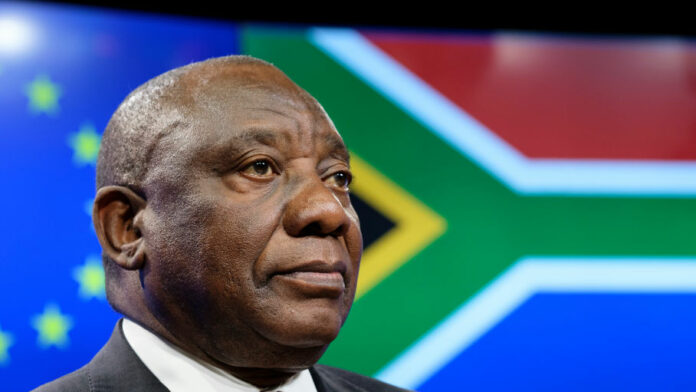
GLENCORE sought to quell political fallout in South Africa stemming from findings delivered by anti-fraud organisations last week, saying today the country’s president Cyril Ramaphosa had no connection to company corruption in its African businesses.
Glencore pleaded guilty to findings in three investigations including the US Department of Justice (DoJ) regarding bribery and market manipulation. It agreed to pay $1.06bn in fines and has set aside a total of $1.5bn to account for additional investigation sanctions.
However, politicians and media reports have questioned whether the corruption extended to Glencore’s South African businesses including its coal division that once owned Optimum Coal Mine implicated in South Africa’s independently produced State Capture Report.
Ramaphosa was in partnership with Glencore whilst a director of Shanduka Group, a diversified industrial company with significant coal mining interests including a stake in Optimum Coal and its associated mine, Koornfontein.
In addition, a letter written by Bantu Holomisa, a member of parliament and president of the United Democratic Party addressed to the Public Protector suggested South Africa ask for US government assistance with finding out whether Glencore South Africa was involved in the corruption – an allegation Holomisa said was “quite high”.
Glencore said there had been “significant misinformation” regarding the investigation reportage. “None of the investigations relate to our business in South Africa or our coal, ferroalloys or Astron businesses,” it said.
It also denied allegations relating to Optimum Coal which recent reports in the media suggested must have been wrapped up in the corrupt practices discovered by the DoJ as well as the UK’s Serious Fraud Organisation (SFO).
Critically Glencore rushed to the defence of Ramaphosa saying he had divested of its entire interest in Optimum Coal in 2014 prior to his appointment as the country’s deputy president and before presiding over the “Eskom War Room”, established by then President Jacob Zuma. The War Room was established to reform Eskom’s fortunes but proved to be a facade as the government continued to defraud the South African state.
“The suggestion that Glencore involved Mr Ramaphosa in the acquisition of OCH [Optimum Coal Mine] with a view to, or with the expectation of, leveraging Mr. Ramaphosa’s influence to achieve amendments to the CSA, is false and baseless,” the group said.
The back story of Glencore’s sale of Optimum Coal to a company owned by the Gupta family is complicated; suffice to say that in the hands of the Guptas – who have since fled South Africa – the mine was exploited for personal gain.











